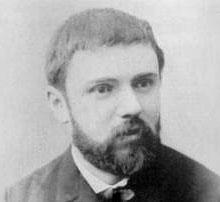
Poincaré
Jules Henri Poincaré (29 April 1854 – 17 July 1912) was one of the foremost mathematicians and physicists of the late nineteenth century. He made major contributions to virtually every field in mathematics, and was one of the founders of topology and chaos theory. In physics he is most closely associated with his work on electrodynamics and relativity theory, being among the first to write down the Lorentz transformations. However, like Lorentz, he resisted Einstein’s formulation of the theory, and despite his work, prior to Einstein’s, on the synchronisation of distant clocks, he never embraced the concept of relativity of simultaneity. Whilst noting the possibility of a four-dimensional framing of relativity and the invariance of the interval ds2=c2dt2-dx2-dy2-dz2, he advised against pursuing this formulation of the theory.
Poincaré wrote extensively on philosophy of science in Science and Hypothesis (1902), The Value of Science (1905), and Science and Method (1908). He placed emphasis on the conventional aspect of certain scientific claims, including the geometry of space. In Science and Hypothesis he also advocated a neo-Kantian approach to science according to which only structural relations among things can be known, not the things themselves. (It was neo-Kantian, rather than Kantian, because according to Kant not even the structure of things in themselves could be known.) In the light of scientific change, with its attendant discarding of precursor theories, Poincaré argued that mathematical structures were still preserved, an early form of what is now known as structural realism. Neo-Kantianism also led Russell to conclude, a decade later, that scientific knowledge could only consist of structure relations among things, not the things in themselves.
He was born in Nancy, where he was educated at the Lycée . He went on to study at the Ecole Polytechnique and the Ecole des Mines. Whilst working as a mining engineer he wrote a doctoral thesis under Charles Hermite at the Polytechnique on the theory of differential equations. He went on to teach at the University of Caen and from 1881 at the Sorbonne. He continued his mining career, however, becoming inspector general of mining in 1910. He was politically active, intervening on behalf of Dreyfus in 1899 and 1904.
Links
Internet Encylopaedia of Philosophy >
